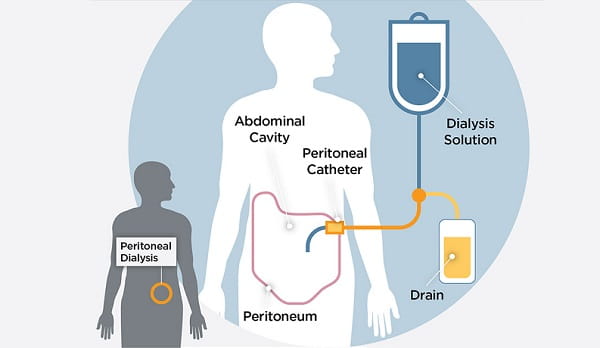Many people don’t know this, but the kidney is the prime organ that plays a vital role in cleaning our blood. And if something goes wrong with your kidney, like there are toxins in your body that are jamming the kidney, or you could be suffering from acute kidney failure In such cases, to keep your blood clean and to keep you alive, doctors perform a procedure called dialysis, commonly known as kidney dialysis.
It can occur when people drink water with higher salt content, and doctors perform dialysis to ensure that the salt and other minerals do not build up inside your kidney. Some other cases would be where dialysis is needed, like when it is required to maintain a certain level of chemicals in your blood or to keep your blood pressure under control. In the case of acute kidney failure, doctors perform dialysis on the blood just for a short period. This way, your kidneys can get time to heal properly and function normally.
So we talked about the scenarios when kidney dialysis is needed, and you might be aware of all these scenarios. But you are here to find out about the average cost of kidney dialysis in India. right? So let’s get down to it.

The cost of Kidney dialysis can vary a lot because of a few factors such as:
Most of the time the cost varies because of the type of dialysis you are going with.
There are two types of dialysis to clean the blood:
This is the most common type of blood dialysis performed in India, and there are higher chances you’re thinking right now to go with this option. For hemodialysis, doctors use a blood filtering machine called a dialyzer. There is a filtration section in a dialyzer where filtering fibers and dialysate are present to filter out electrolytes, toxins, drugs, and excess fluids from your blood. Since a Dialyzer cleans your blood outside of your body, therefore, doctors need to prepare for something called an arteriovenous (AV) graft or fistula to access your body’s bloodstream. It is usually done a few weeks prior to the actual dialysis session, but in some emergency cases, it can be done quite immediately.
In the case of an AV Graft, the doctor will make an incision in your forearm and connect an artery with a vein with the help of a soft plastic tube. In the case of an AV Fistula, doctors make a small incision in your skin and connect the artery directly to a vein to form a larger vessel, which is known as a fistula. Once the wound is properly healed, the doctors can begin hemodialysis.
The peritoneum (the membrane lining of your abdomen) is used to clean your blood without removing it from your body. The preparation involves the implantation of a catheter (a soft tube) near the belly button. This will work as the port to insert the dialysate inside the peritoneum. Every session of cleaning the blood with this method is called an "Exchange." And because of the membranes of your abdomen, the toxins, excess fluids, and electrolytes are filtered out of your blood. Once the Exchange is completed, the doctors will drain out the dialysate from your abdomen.
Q1. Do Complications Occur After Kidney Dialysis?
Ans: It’s been quite a long time since Kidney dialysis was first introduced, and it is considered one of the safest options to filter out the blood outside the human body. However, still there are some complications that occur after the dialysis procedure. These complications can be divided into two categories, not serious and severe. The not serious complications may include discomfort, itching, and even sleep problems, but these don’t last long. On the other hand, severe complications include infection around the catheter site, blood pressure fluctuations, anemia, etc.
Q2. Is There Any Special Care Involved For A Kidney Dialysis Patient?
Ans: Prior to the dialysis procedure, it is extremely important for medical professionals to prepare everything in a hygienic way to eliminate or lower the risk of infection, which is a common issue with such procedures. And the patient should be monitored appropriately during and after the dialysis, and only then the patient should get discharged from the hospital.
Q3. Why Is Kidney Dialysis Not A Permanent Solution?
Ans: Kidney dialysis procedure only cleans the blood by taking out all the toxic elements dissolved in the blood. And if there is something wrong with the kidneys and they require time for proper healing, then the dialysis process can buy some time for the healing of kidneys. Kidney dialysis doesn’t heal the kidney, therefore it is a rather temporary solution.